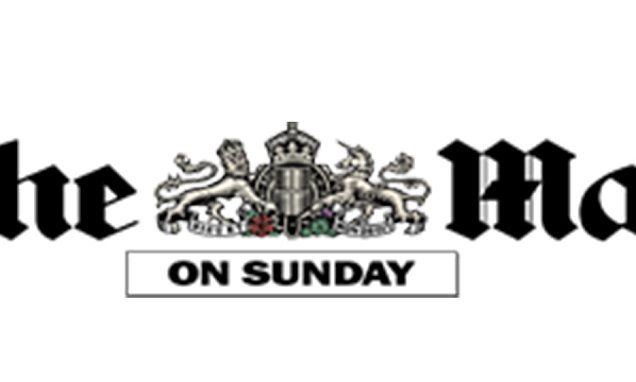The Importance Of Corrections And Clarifications In Communication

Table of Contents
Building Trust and Credibility Through Corrections and Clarifications
Addressing errors promptly and professionally is crucial for building and maintaining trust. A swift and sincere response to miscommunication shows accountability and respect for your audience. Conversely, delayed corrections or a lack of acknowledgement can severely damage your reputation.
Addressing Errors Promptly and Professionally
- Public apologies: A well-crafted public apology for a significant error demonstrates responsibility and can often mitigate negative consequences.
- Product recalls: Handling product recalls efficiently and transparently, including clear instructions and communication, shows commitment to consumer safety and builds trust.
- Online corrections: Correcting misinformation on a website or social media platform quickly reduces the spread of inaccuracies.
Delayed corrections, on the other hand, can lead to:
- Erosion of trust: The longer you wait, the more damage is done to your credibility.
- Amplified negative publicity: News outlets and social media can exacerbate the situation, leading to a PR crisis.
- Loss of customers: People are less likely to trust a company that doesn't own up to its mistakes.
Owning your mistakes is paramount. Don't try to hide or downplay errors; instead, address them directly and sincerely. This shows integrity and strengthens your relationship with your audience.
The Power of Clarification in Preventing Misinterpretations
Proactive clarification prevents many communication breakdowns. By anticipating potential misunderstandings and providing additional context, you can avoid the need for corrections altogether.
- Rephrasing complex instructions: Breaking down complex information into smaller, easier-to-understand chunks avoids confusion.
- Providing additional context: Offering background information or examples can illuminate potentially ambiguous statements.
- Using multiple communication channels: Utilizing different channels, such as email, phone calls, and video conferencing, allows for more thorough explanations and opportunities for questions.
Proactive clarification reduces the need for later corrections by:
- Ensuring clear understanding: Clear communication minimizes the chance of misinterpretation.
- Building confidence: Knowing that you are readily available to clarify issues builds trust and confidence in your communication.
- Saving time and resources: Addressing potential misunderstandings upfront is far more efficient than dealing with the fallout of miscommunication later.
Improving Communication Effectiveness with Feedback Mechanisms
Effective communication is a two-way street. Establishing open channels for feedback and actively soliciting input is essential for refining communication strategies and ensuring accuracy.
Establishing Open Channels for Feedback
- Surveys: Online surveys provide valuable quantitative and qualitative data about your audience's understanding of your message.
- Comment sections: Allowing comments on your website or blog posts enables direct interaction with your audience.
- Suggestion boxes: Both physical and online suggestion boxes provide a platform for feedback.
- Social media monitoring: Tracking mentions of your brand on social media allows you to quickly identify and address concerns.
Actively soliciting feedback demonstrates that you value your audience's input and are committed to improving your communication. Two-way communication fosters a stronger connection and ensures your message is received accurately.
Using Feedback to Refine Communication Strategies
Analyzing feedback reveals areas where your communication might be unclear or inaccurate. This allows you to adapt your approach and improve future communications.
- Simplifying language: Identifying jargon or overly technical terms allows you to tailor your language to your audience.
- Improving visual aids: Analyzing feedback on visuals helps improve clarity and effectiveness.
- Reorganizing information: If feedback suggests a lack of clarity in the structure of your message, reorganizing the information can improve understanding.
The iterative nature of communication improvement means that ongoing feedback and adjustment are crucial for long-term success. Regularly reviewing feedback and refining your strategies ensures that your communication remains effective and accurate.
Legal and Ethical Considerations of Corrections and Clarifications
Accurate information is not just about good communication; it's a legal and ethical imperative. Inaccurate information can have severe consequences.
Mitigating Legal Risks Through Accurate Information
- Libel and slander: False statements that damage someone's reputation can lead to costly lawsuits.
- Misleading advertising: False or misleading claims in advertising can result in significant fines and reputational damage.
- Contract disputes: Ambiguous language in contracts can lead to costly legal battles.
Fact-checking and verification are essential steps in ensuring accuracy and mitigating legal risks. Corrections and clarifications, when necessary, demonstrate a commitment to responsible communication and can help protect your organization from legal action.
Maintaining Ethical Standards in Communication
Transparency, accountability, and responsibility are cornerstones of ethical communication. Correcting misinformation promptly and transparently is ethically crucial.
- Transparency: Openly acknowledging errors and providing clear corrections shows honesty and integrity.
- Accountability: Taking responsibility for inaccurate information shows a commitment to ethical behavior.
- Responsibility: Understanding the impact of your words and taking steps to correct misinformation is essential.
Clarifying ambiguous statements prevents misinterpretations and ensures that your communication is ethically sound. Ethical communication builds trust and strengthens relationships.
Conclusion
Corrections and clarifications are not merely afterthoughts; they are essential components of effective, responsible, and ethical communication. They build trust, improve communication effectiveness, and mitigate legal and ethical risks. Investing in clear communication strategies that incorporate robust mechanisms for feedback and corrections is vital. Prioritize accuracy and transparency to build strong relationships and maintain your reputation. Mastering the art of corrections and clarifications is an investment in the success of your communication.

Featured Posts
-
 Beyonce Fushata E Re E Levi S Pamje Seksi Qe Cmend Fansat
Apr 30, 2025
Beyonce Fushata E Re E Levi S Pamje Seksi Qe Cmend Fansat
Apr 30, 2025 -
 Eurovision 2025 Australia Your Guide To Live Streaming And Tv Broadcast
Apr 30, 2025
Eurovision 2025 Australia Your Guide To Live Streaming And Tv Broadcast
Apr 30, 2025 -
 Beyonce And Kendrick Lamars Naacp Image Awards Domination Blue Ivys Win
Apr 30, 2025
Beyonce And Kendrick Lamars Naacp Image Awards Domination Blue Ivys Win
Apr 30, 2025 -
 Carnival Cruise Lines 7 Big Announcements For Next Month
Apr 30, 2025
Carnival Cruise Lines 7 Big Announcements For Next Month
Apr 30, 2025 -
 Understanding Beyonce And Jay Zs Approach To Sir Carters Privacy
Apr 30, 2025
Understanding Beyonce And Jay Zs Approach To Sir Carters Privacy
Apr 30, 2025
